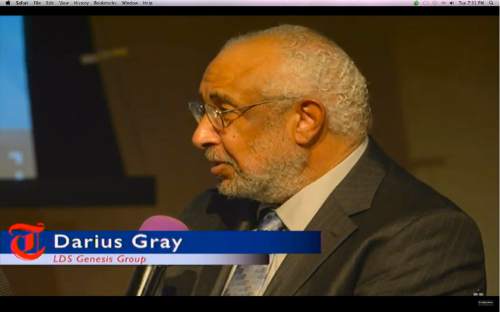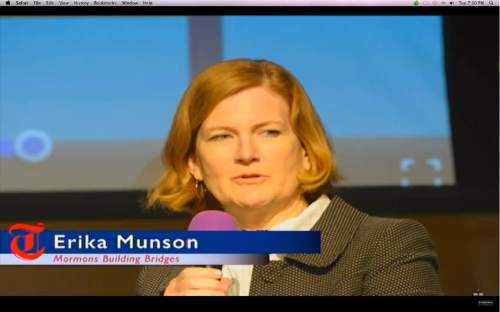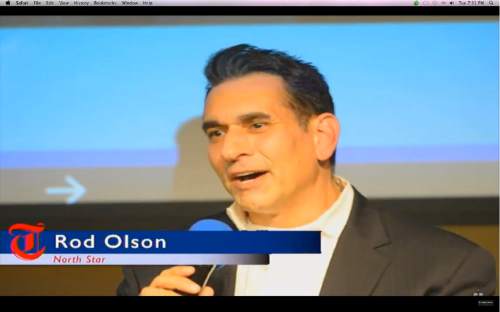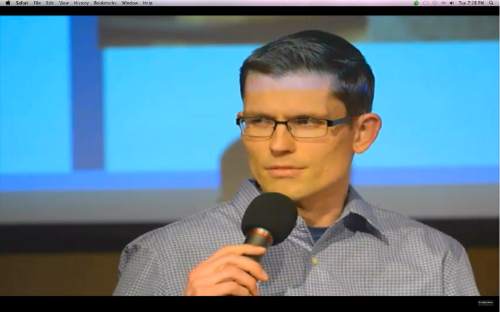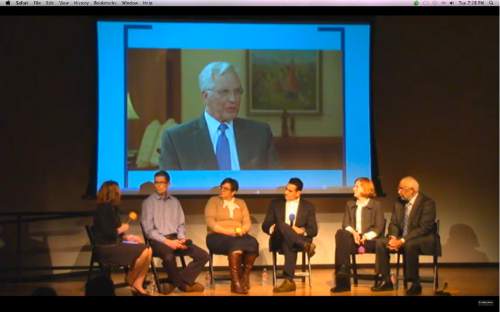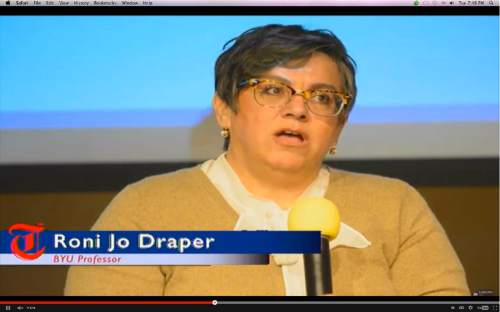This is an archived article that was published on sltrib.com in 2015, and information in the article may be outdated. It is provided only for personal research purposes and may not be reprinted.
Editor's note: Tuesday's forum included reader comments submitted to the Utah Public Insight Network, which are included in the text.
—
In Darius Gray's five decades as a black man in the LDS Church, "nothing has hit me as hard," he said Tuesday, as the Utah-based faith's new policy defining gay couples as "apostates" and barring their children from Mormon rites like baptism.
"I know what it is like to be labeled. I know what it's like to be considered cursed," Gray said, alluding to the church's now-disavowed ban on black men and boys being ordained to the Mormon priesthood. "Words like 'apostate' don't sit easily with me or [seeing] children made to feel outside of the norm."
Because of his own history with The Church of Jesus Christ of Latter-day Saints, Gray said, "It has been very difficult for me to find comfort in what is being said."
Gray was among five speakers on a panel that addressed an overflow crowd at The Leonardo in downtown Salt Lake City, gathered for a town hall discussion led by The Salt Lake Tribune's Jennifer Napier-Pearce. The 90-minute session was live streamed on the Tribune's website.
Roni Jo Draper, a Brigham Young University professor who has a gay son, wondered why the policy singled out the children of same-sex couples, and not of straight couples who are not living by LDS standards.
"I don't understand why other violators of the law of chastity are not labeled apostates," she said. "Christ was clear that we are all sinners and all have need to repent."
The apostate label for their parents hurts children of gay couples, Draper said, "especially if they are not progressing, and enjoying the same rites of passage as their peers."
The policy is part of "Handbook 1," a guide for lay leaders of the church. After children of same-sex couples turn 18, they can ask to be baptized if they meet certain requirements, including "specifically disavow[ing] the practice of same-gender cohabitation and marriage" and not residing with a parent "who has lived or currently lives in a same-gender cohabitation relationship or marriage."
Jacob Hess, a mental health professional with Salt Lake City-based Village Square, is worried about the polarization the policy has spawned. Village Square aims to foster dialogue between liberals and conservatives,
"Thoughtful people can disagree about a lot of things, including this [policy]," Hess said. "We like simple black-and-white explanations … . The explanation that it is those big bad Mormon leaders coming after the kids doesn't resonate with millions of members in our experience of the [LDS] prophet."
Gray doesn't see the policy's writers as "big bad Mormon leaders," either, he said. But the language of the policy, he said, can "carry a lot of baggage."
Rod Olson, a gay Mormon who lives in Eden, Utah, initially was troubled by the policy, but he said he hasn't experienced unkindness or judgment in its aftermath from fellow Latter-day Saints.
"My experience has been completely positive," Olson said. "I got 111 Facebook messages of outreach and love."
Regardless of the policy, church members need to "reach out more … to go amongst our neighbors and extend the love," the lively marketing expert said. "This policy has nothing to do with charity."
Erika Munson, co-founder of Mormons Building Bridges, which works to improve ties between the LDS and LGBT communities, rejects the assumption that married same-sex couples don't want a life in the LDS Church.
"There are plenty of couples out there who do want it," Munson said. "It may not be easy but may be way less dissonance than some [LDS ] leaders think."
The policy is not hateful, but exhibits a "stunning lack of empathy among our leaders at the highest level," she said. "I will continue to pray for them to do the hard work … of showing empathy to our LGBT brothers and sisters."
When asked if they have known anyone to resign their church membership over the issue, all five panelists raised their hands.
"I don't want to lose those people," Hess said. "I mourn them and do not celebrate the loss."
None of the panelists is planning to walk away from the LDS Church, they said.
"I am comfortable," Draper said, "with not being comfortable with this policy."
Olson, who said he was "blessed with a believing gene," sees Mormonism as an evolving church that constantly changes.
Gray said he didn't know where this policy — with its "unintended consequences" — will be in the future, but added that he has faith, hope and trust in God "that we can make something good out of this."
pstack@sltrib.com


